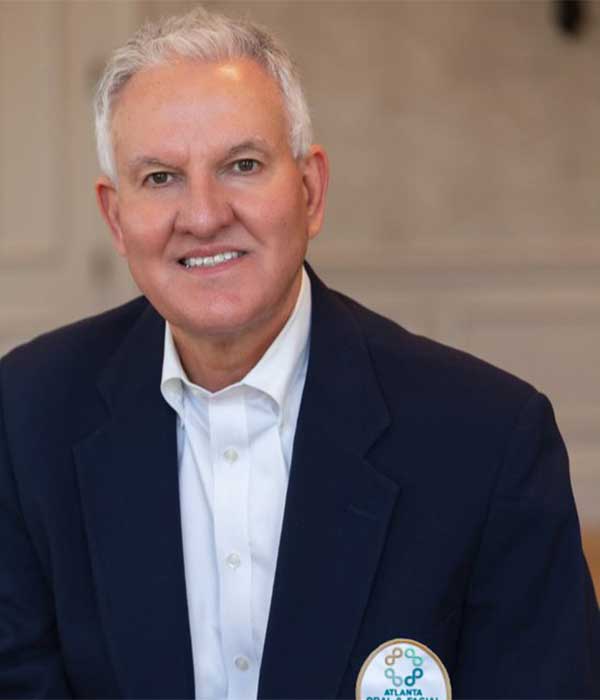The Importance of Replacing an Extracted Tooth
The Importance of Replacing an Extracted Tooth
Tooth extractions are sometimes necessary to protect oral health, whether due to severe decay, trauma, or overcrowding. However, many patients may not realize the importance of replacing an extracted tooth as soon as possible. Failing to do so can lead to several complications, including bone loss, shifting teeth, and difficulties with chewing and speaking. Understanding the risks and available replacement options is crucial for maintaining overall dental health. Learn more about teeth extraction in Atlanta, GA.
Why Replacing an Extracted Tooth Matters
We often receive questions about whether or not you need to replace a tooth after it has been extracted. We’re happy to answer your questions, including “does tooth extraction hurt?”, “can you have a tooth extraction while having braces?” and more. Learn more about why replacing an extracted tooth is important.
1. Preventing Bone Loss
One of the most significant consequences of tooth extraction is bone resorption. When a tooth is removed, the jawbone in that area no longer receives stimulation from chewing and biting, leading to gradual bone loss. Over time, this can weaken the jawbone, affect facial structure, and make future tooth replacement more challenging.
2. Avoiding Teeth Shifting
Teeth work together to maintain alignment and function. When a tooth is extracted, adjacent teeth may begin to drift into the empty space. This can lead to misalignment, bite issues, and even difficulties in cleaning the teeth properly, increasing the risk of cavities and gum disease.
3. Maintaining Proper Chewing & Speech
Each tooth plays a role in breaking down food efficiently. Missing a tooth can create difficulties in chewing certain foods, which can impact digestion and nutrition. Additionally, missing teeth can affect speech, making it harder to pronounce certain words clearly.
4. Preserving Facial Aesthetics
Tooth loss can cause the face to appear sunken over time due to loss of jawbone density and shifting of facial muscles. Replacing missing teeth helps maintain the natural contours of the face, preserving a youthful appearance.
How Long Does It Take for Tooth Extraction to Heal?
The healing process for a tooth extraction varies depending on the complexity of the procedure and the individual’s oral health. Generally, the initial healing period takes about 1 to 2 weeks, during which the gum tissue closes over the extraction site. However, full bone healing can take several months.
Does Extracting a Tooth Hurt?
Many patients worry about pain associated with tooth extractions. While some discomfort is expected, modern dental techniques ensure the procedure is as painless as possible. Local anesthesia is typically used to numb the area, and sedation options may be available for more complex extractions. Post-extraction discomfort can usually be managed with over-the-counter pain relievers and proper aftercare.
Can You Get a Tooth Extracted While Having Braces?
In some cases, tooth extractions are necessary as part of orthodontic treatment. If teeth are overcrowded, an orthodontist may recommend removing one or more teeth to create space for proper alignment. However, whether an extraction is needed while braces are in place depends on the specific treatment plan.
Options for Replacing an Extracted Tooth
The good news is you have a few options when it comes to replacing an extracted tooth. Learn about some of the alternatives:
1. Dental Implants
Dental implants are one of the most effective and long-lasting solutions for tooth replacement. They involve placing a titanium post into the jawbone, which acts as an artificial root. Over time, the implant fuses with the bone, providing a stable foundation for a crown that looks and functions like a natural tooth.
Benefits of Dental Implants:
- Prevents bone loss by stimulating the jawbone
- Provides a durable, long-lasting solution
- Functions and looks like a natural tooth
- Does not affect surrounding teeth
2. Dental Bridges
A dental bridge is another common replacement option, especially for patients who may not be candidates for implants. Bridges consist of one or more artificial teeth anchored by crowns on adjacent natural teeth.
Benefits of Dental Bridges:
- Restores function and appearance
- Prevents teeth from shifting
- More affordable than implants
- Does not require surgery
3. Partial Dentures
Partial dentures are removable appliances that can replace multiple missing teeth. They consist of artificial teeth attached to a gum-colored base, which is supported by clasps that attach to existing teeth.
Benefits of Partial Dentures:
- Non-invasive and removable
- Can replace multiple missing teeth
- More cost-effective than implants or bridges
4. Full Dentures
For patients missing all teeth in an arch, full dentures provide a complete replacement option. These removable appliances restore function and aesthetics, allowing for improved chewing and speech.
Benefits of Full Dentures:
- Restores appearance and function
- Affordable compared to other options
- Can be customized for a comfortable fit
- Aftercare for Tooth Extraction and Replacement
- Proper aftercare is essential for ensuring successful healing and preventing complications.

After Tooth Extraction Care
After having a tooth extracted, it’s important to care for it properly to avoid complications. Here are some tips:
- Avoid smoking and using straws for at least 48 hours to prevent dry socket.
- Apply ice packs to reduce swelling in the first 24 hours.
- Stick to a soft food diet for the first few days.
- Keep the extraction site clean with gentle rinsing using warm salt water.
After Tooth Replacement Care
Once you’ve had a tooth replaced, there are some recommended steps to ensure everything goes smoothly:
- Maintain good oral hygiene by brushing and flossing regularly.
- Attend regular dental check-ups to ensure the longevity of implants, bridges, or dentures.
- Follow care instructions provided by the dentist to maximize the lifespan of the replacement.
Final Thoughts: Don’t Delay Tooth Replacement
Delaying the replacement of an extracted tooth can lead to long-term dental issues, including bone loss, misalignment, and functional problems. Whether choosing a dental implant, bridge, or denture, replacing missing teeth is essential for maintaining oral health, functionality, and appearance. If you have recently undergone a tooth extraction or are considering tooth replacement options, consult with the team at Atlanta Oral & Facial Surgery to find the best solution for your needs.
Schedule a Consultation Today
If you need a tooth extraction or a replacement, our experienced team is here to help. Contact Atlanta Oral & Facial Surgery to discuss your options and take the first step toward restoring your smile.











































